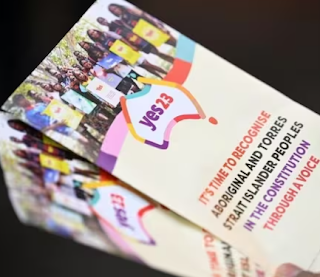The backing for the incorporation of an Indigenous advisory panel into Australia's constitution has experienced a further decline, as indicated by a recent poll published on Monday. This trend raises concerns about the fate of the significant proposal as the nation approaches a crucial vote next month.
According to a survey conducted for the Sydney Morning Herald newspaper, support for a "Voice to Parliament" has waned for the fifth consecutive month. The government has been grappling with the challenge of persuading skeptical and undecided voters to endorse the proposal.
On October 14, Australians will participate in the referendum, during which they will be asked to express their stance on amending the constitution to establish an Indigenous committee that will provide advice to the federal parliament.
Changing the constitution requires not only a national majority of votes but also a majority of votes in at least four of the six states. However, the survey revealed that only Tasmania, the island state, lent its support to the Voice.
Historically, since Australia gained independence in 1901, only eight out of 44 proposals for constitutional change have been approved.
The most recent survey indicates that support has dwindled to 43%, down from 46% in August. In Australia's most populous states, New South Wales and Victoria, voters have shifted their stance against the proposal.
The 'No' vote is most pronounced in Queensland and Western Australia, with 61% of respondents in these states poised to reject the Voice.
The poll also illuminated Prime Minister Anthony Albanese's approval ratings, which have suffered a decline in ratings. This marks the first time they have entered negative territory since the May 2022 election. Notably, Albanese has expended significant political capital in championing the referendum.
The debate surrounding the referendum has generated a schism of opinions. Advocates contend that the Voice would foster progress for the Aboriginal community, acknowledge their 65,000-year-old culture, and "unify the nation." Opponents argue that it would be divisive, granting excessive powers to the body. Some critics have characterized it as tokenism and ineffectual.
Comprising approximately 3.2% of Australia's nearly 26 million population, the Aboriginal people endured marginalization under British colonial rule and are conspicuously absent from the 122-year-old constitution.



